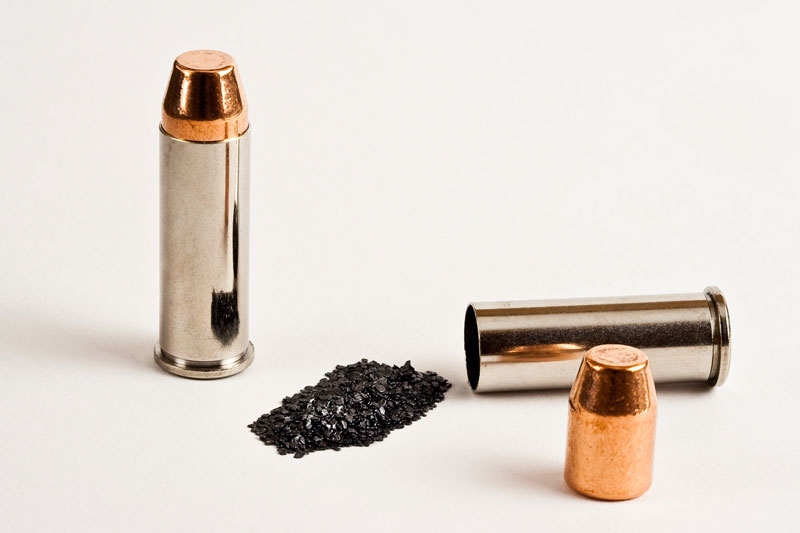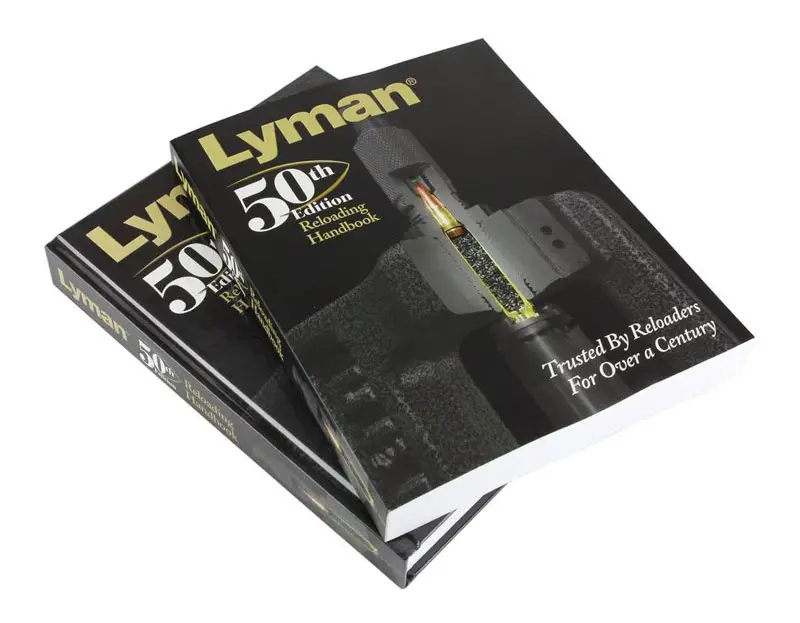Do you want to make custom ammo for your next trip to the shooting range? If so, you need to know just how much gunpowder you need to make a bullet.
So, how many grains of gunpowder is there in 1 pound?
One pound of gunpowder has 7,000 grains of powder no matter which type of powder you are using. Measuring out the right amount of gunpowder is crucial for ensuring bullet accuracy and effectiveness.
Let’s explore more about gunpowder, grains, and how it all fits together.
What Exactly Are Bullet Grains?
A grain is a unit used to measure the weight of a bullet. Since it is a tiny unit, the weight of a grain is nearly negligible – just 0.064 grams, in fact! Thus, the number of grains in a shell refers to the entire weight of the bullet.
Here’s where things get complicated – bullets are often weighed in grains. But their grain-weight doesn’t necessarily mean they contain all those grains. For instance, a 230-grain bullet does NOT have 230 grains of powder inside.
Furthermore, the grain-weight only measures the weight of the bullet, not the cartridge that comes with it.
What Units Are Grains Measured In?
Grains are measured in Grams, ounces, and pounds.
| Gunpowder Weight | Number of Grains |
| .064 grams | 1 Grain |
| 1 gram | 15.43 Grains |
| 1 ounce | 437.5 Grains |
| 1 pound | 7,000 Grains |
Remember, there are 7000 grains in 1 lb of gunpowder, whether it is smokeless or black powder. As long as it weighs 1 pound, any type of powder contains the same number of grains, no exception. 1 lb of powder = 458.592 grams.
Since you know how many grains are in a pound, you can also determine ratios of grains to grams, grains to ounces, and more.
How Many Bullets Can 1 Pound of Gunpowder Make?
The number of bullets per pound of gunpowder depends on the size of ammo and the charge of powder. A powder’s “charge weight” is how much propelling force it provides to a projectile (i.e. a bullet), usually expressed as “weight in pounds”. More charge means a bigger boom.
But different bullets need different charge weights per load or per round to be used safely. That’s why it’s crucial to decide just how large you want the shells to be. After that, you can carry out the necessary calculations to know the gunpowder load in every bullet.
You should also have a reloading manual handy before you start to load your own ammo. These books are made by gunpowder manufacturers who know how many grains of powder you should put into different calibers of bullets.
For instance, 9mm bullets (some of the most common for self-defense) come in 115, 124, and 147 grain (gr) varieties. But none of these take over 100 grains of gunpowder! Instead, the most common charge weight is 5. That means each bullet usually only takes 5 grains of powder for loading.
9mm
In the above example of using charges of 5 grains, you could make 1,400 9mm bullets since each only takes 5 grains and 1 pound of gunpowder has 7,000 grains.
7,000 grains / 5 grains per bullet = 1,400 bullets.
.223 Remington Cartridges
Your source may vary, but most folks use charges of 25 or so grains.
7,000 grains / 25 grains per bullet = 280 .223 Remington bullets
Remember, each bullet type takes a different type of powder charge.
We recommend the Lyman 50th Edition Ammo Reloading Book, which has a ton of charge info you can use for popular bullet types. It can also help you with powder conversion, offering excellent value for money.
Speer also has a ton of reloading data that you can use for reloading. Their guides are comprehensive and available online for free.
Alternatively, check gun forums and posts – hobbyist shooters on a good forum can provide their expertise with a helpful post or two and ensure you load your rifle correctly.
Importance of Choosing the Right Bullet Grains
It’s imperative that you remember to choose the right powder charge for your bullet. If you fail to do so, your bullet may not cycle in your firearm’s receiver, causing a dud. On the other hand, if you overpack your bullet by filling it with too many grains of gunpowder, you could cause it to explode too violently, leading to an accident and possibly injuring yourself.
Heavier bullets typically require more grains of gunpowder or require larger grains of gunpowder to produce a suitable explosion. Lighter bullets require fewer grains of gunpowder on average. But this can vary dramatically from bullet to bullet depending on their materials, what kinds of guns they are used with, and more.
| Bullet Size | Grains |
| 9mm Luger | 5.6 Grains |
| .223 | 25 Grains |
| .308 Cartridge | 45 Grains |
Again, be sure to use a gunpowder charge manual like the one recommended above to load your bullets carefully and safely, especially if you’re a beginner.
Smaller vs Larger Grains
Bullet powder grains can also vary in terms of size. When it comes to gunpowder, smaller grains have more of their surface areas exposed to the ignition substance. As a result, they typically burn faster than larger grains.
Naturally, ammunition that uses smaller grains for its charge weight will explode from the barrel of a firearm faster and with higher initial velocity. However, this earlier burning mostly terminates before the bullet leaves the barrel of a firearm. So it doesn’t maintain its velocity for as long.
Larger grains are the opposite. Their surface areas are not exposed to the ignition substance the same was as smaller grains, so it takes longer for them to burn all the way on their trip down a gun’s barrel. Larger grains, therefore, may be better if you need to ensure your bullet travels far and accurately without losing velocity.
Note that this is not a hard and fast rule, however, and different types of grains perform differently under fire (no pun intended). Be sure to look at the charge manual described above for specific bullet loads and charge weights
Conclusion
Bottom line: there are 7000 grains per pound of gunpowder. But keep in mind that this does not mean you can simply divide 7000 by bullet grain weight to know how many rounds you can make. Each bullet’s grain-weight measures its real-world weight, but the charge weight will determine how many bullets you can make with a pound of gunpowder.

Growing up, John loved learning about the components of firearms and what makes them work, which still intrigues him to this day. He’s a very outdoorsy person, and he loves fishing, hunting, and skeet shooting. He is a firm believer in the Second Amendment and the right to bear arms.


Can i use sbs8 gun powder on 9mm bullet , if in that case its a yes , how many grains should i usu fo every bullet. Thanks in advance.
Nice article! Just want to point out that there are 453.6 grams in a pound.
good info